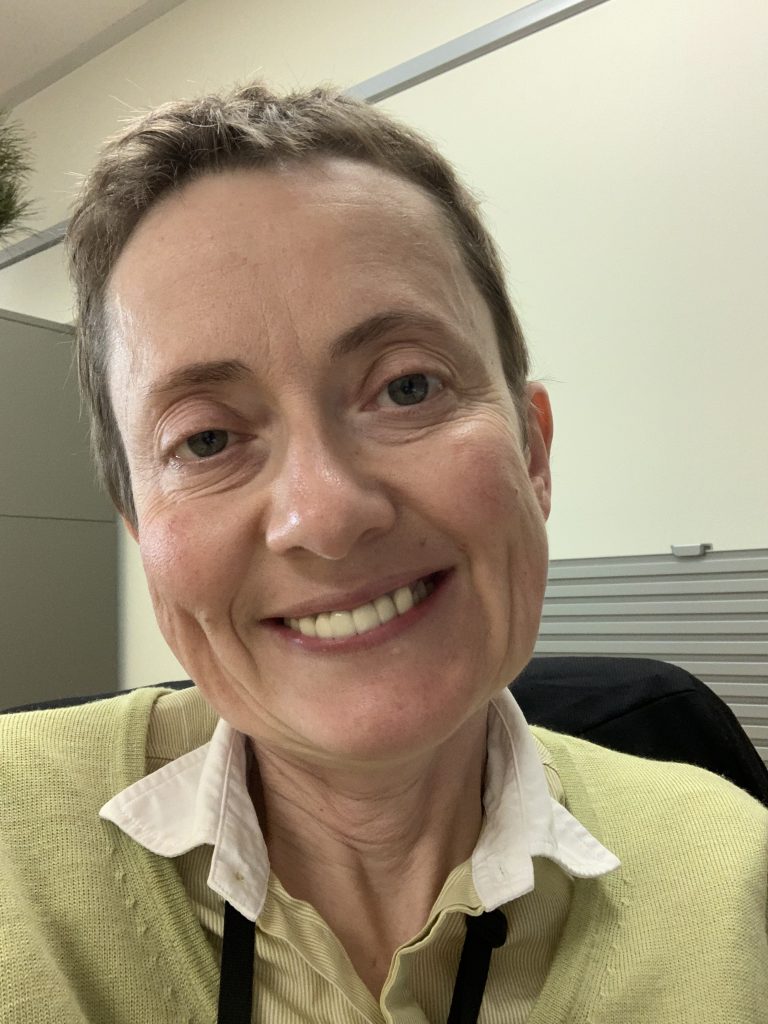
My name is Olga Childs (nee Sagareva). I am originally from Moscow, Russia, but have lived in the United States and the U.K. for most of my [so long] life. I also lived in Venezuela, India, Montenegro, Spain and Latvia.
I am a British citizen and a permanent resident of the United States. I am not a citizen of Russia. I speak fluent Russian, and can get by in Spanish. I have three adult daughters, all of whom live in the U.K. I live in Irthlingborough, Northamptonshire and New Jersey.
I hold an MBA from the Zicklin School of Business at Baruch College, City University of New York, and an LLB from the University of London. I completed the credits necessary for an LLM at Temple University in Philadelphia, and have passed the California Bar exam in the past. I studied property law and trusts on both sides of the Atlantic.
Please note, I am not currently an attorney in any U.S. state, not a solicitor in England and Wales or any other U.K. jurisdiction, and not a licensed conveyancer in the UK.
I hold a real estate salesperson license in the U.S. state of Florida – I do not currently offer services there, but might do in the future. I am also considering licensing in another state where there is interest from my clients (watch this space).
I previously operated a popular immigration law practice in the U.K. under OISC regulation, and am known to some of my clients since that time.
I lived and worked in Russia in the past, where I worked as a journalist – including as editor of the Business Review and Real Estate supplements for the Moscow Times, and a marketing director for a high-end real estate firm there.
My close friend at the time was one of Moscow’s “power brokers” who put together some of the most legally complex real estate transactions imaginable, and I enjoyed helping her structure those as a hobby. Unfortunately, she passed away, and I moved away.
In the U.K., I trained as an estate agent with Century 21 and worked for franchise outlets in Scotland and Northern Ireland. My passion, however, was always to assist buyers of property, and particularly immigrant buyers new to the market, as well as investors – something a U.K. estate agency market, which is focused on assisting sellers, is not really made for.
I also have some experience conducting private investigations, and working for a firm operating in commercial risk assessment business. Some of that work included assessment of property investment risk, related to Eastern Europe (references available on request).
Today, my main focus is to guide immigrant buyers through markets that are new to them, and to find value in the “distressed property” investment market, e.g. identifying properties – which are usually listed for sale at auctions, but not necessarily – that offer a more lucrative return.
I have found that there are generally two types of buyers on the U.K. “distressed property” market: (a) those who buy inexpensive liveable properties in order to rent them out, thereby making their money back via rent, regardless of the short- or mid- term liquidity, and (b) those who buy properties needing refurbishment in order to “fix and flip” them.
The former group often operate at scale, and do not undertake major re-development of individual properties, but have higher tolerance for legal issues, looking for income stream as source of their ROI.
The latter group often operate on short-term finance or their own only funds, sometimes just one project at time, and personally manage repairs of redevelopment, but have low tolerance for any legal risk issues that can affect quick re-saleability.
Consequently, the properties where best value is hidden are usually those that suffer from both types of deficiency and fall between the interest of these two groups: those that suffer from some degree of legal issues, but also require refurbishment before they can be let or sold to a would-be resident buyer.
For example, if a leasehold property is non-liveable but also has lease extension issues that may take 2-3 years to fix, a type A investor will not take it on due to need for repairs, and a type B investor will not take it because, for financial reasons, they will need to turn it around sooner than the legal issues can be resolved.
Sometimes, they are also uncertain how much it will cost and how long it can take to resolve any legal issues, and are therefore unable to complete their projected return calculations.
This is where I see my role. In addition to helping immigrant buyers navigate the property market, I help investors make “calls” to buy or not to buy based on deep analysis of the property legal status, and, if necessary, further investigations related to freehold titles, inheritance and missing relatives, leasehold management issues or hidden issues with the property history.
Many of these are the same issues that cause up to a third of deals agreed on the “traditional” market fall through before completion, because they are caught in conveyancing – and often by conveyancers poorly prepared to deal with them, whose risk tolerance levels are set below anything “unusual” and whose M.O. is to scare clients out of buying anything with “issues”.
When such properties are sold at auctions, however, you exchange contracts and pay the deposit – which you would lose if you do not complete – before a conveyancer has entered the scene. When making a call as to whether or not to bid at an auction property, and what maximum price to set for your bid, you need to make that call yourself. This is where I can help you.
Write to olga@giraffeproperty.com to get in touch, or message +447871619495 by text, or on Signal. Alternatively, you can iMessage to (786) 609-0712, or Telegram to @olgachilds.